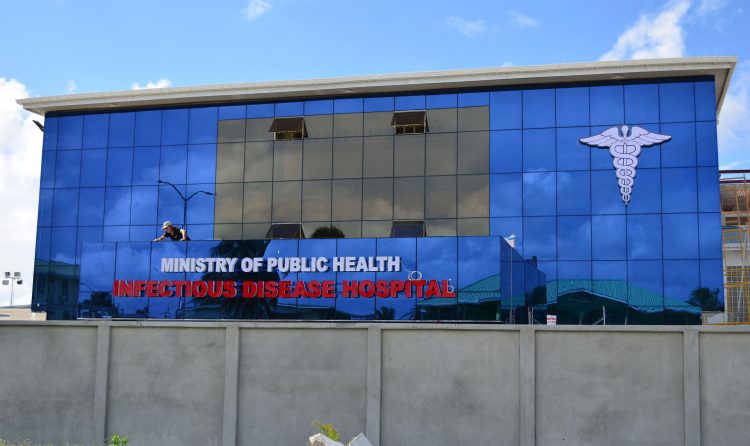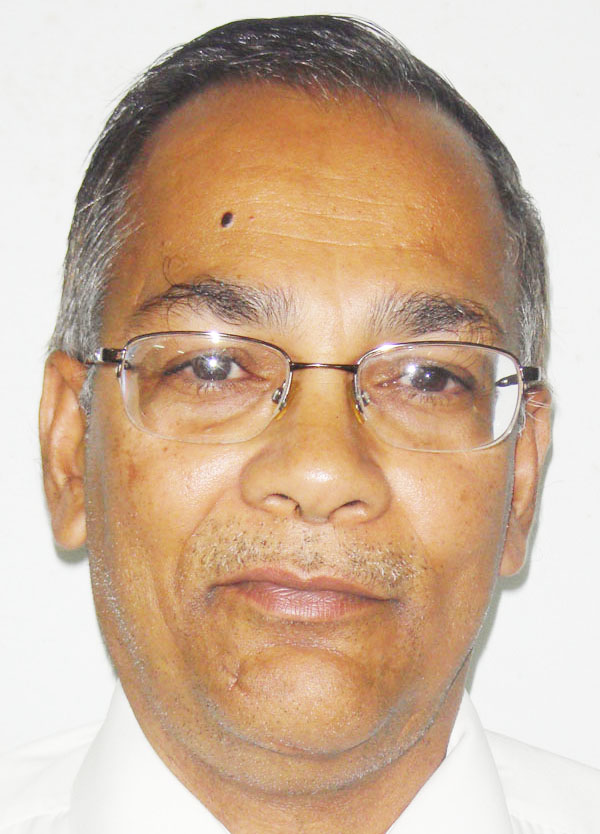The Audit Office of Guyana is currently in the first stage of auditing COVID-19 spending by the caretaker APNU+AFC administration, including assistance that has been disbursed to both individuals and businesses.
Guyana has been without a 2020 budget as a result of the continuing delay in finalising the outcome of the March 2nd polls, which has raised concerns about ongoing spending, including for the COVID-19 response.
“I, myself, want to know where the money is coming from for spending. But with regards to COVID we have begun some audits and are at the interviewing stage. We have interviewed some persons from Ministry of Health and now we are going to CDC (Civil Defence Commission),” Auditor General Deodat Sharma told Sunday Stabroek.

“So, we are embarking on a COVID-19 audit as I am trying to determine where the money came from and how it was spent and if that spending was transparent,” Sharma added.
In March, President David Granger approved a range of measures to tackle COVID-19 and granted powers to de facto Minister of Finance Winston Jordan to enable provisions from the Consolidated Funds necessary for the effectual carrying out of any or all of the measures.
The president, in an extraordinary publication of the Official Gazette, dated March 16, cited constitutional provisions that provide for the taking of such measures. It was noted then that COVID-19, which the World Health Organization declared a pandemic, constituted an emergency that threatened national security and required a national response. Accordingly, the publication said that the president considered that immediate action was necessary.
In May, the government announced that it would provide COVID-19 assistance for vulnerable persons under a COVID-19 Public Assistance Programme. In June, through the Ministry of Finance, the Civil Defence Commission (CDC), the Ministry of Social Protection, the National COVID-19 Task Force Secretariat and the Guyana Post Office Corporation, it commenced the first phase of distribution of COVID-19 public assistance vouchers to eligible persons. At that time, 1700 persons had been selected to benefit from the programme, which targets single-parent households, households in which one or more persons suffered a loss of income due to COVID-19 and households that are managed by elderly persons or persons living with disabilities.
It was subsequently revealed at the start of this month that 12,000 applications for relief assistance had been received and those who are approved will receive vouchers for between $25,000 and $32,000. Asked about the source of the funding for the assistance programme during a virtual press conference, Director of Operations of the COVID-19 Task Force Secretariat Mark Archer said, “The funding was provided through the Ministry of Finance…The assistance was funded by central government through the Ministry of Finance’s budget, and the provision of hampers, the supplies for the hampers is from the Civil Defence Commission’s (CDC) budget.”
Small business owners have also received relief grants from the Small Business Bureau. Sharma said the audit will cover the assistance vouchers, sanitisation supplies bought for agencies to date and monies spent by the CDC for COVID-19 relief projects.
He said the audits will reveal the mechanism used for selecting persons qualified for the assistance and if it was done in a manner in keeping within the law. “Was it transparent? Is it going to the people who deserved it? How were they chosen? How many were selected…so we will be doing a detailed audit of that,” he said.
“Sanitisation items were bought for ministries and we have to look at the procurement aspect…also,” he added.
Additionally, with some $650 million paid out as at June 22nd on government’s $1 billion Infectious Disease Hospital at the old Ocean View Hotel at Liliendaal, the Auditor General has already indicated that the project will also be scrutinised.
“Ocean View has to be audited, as I had told you before, so we are also working on that and it will have to be looked at from the start and also in terms of procurement process used and everything,” he said.
Sharma also said that due to the COVID-19 restrictions now in place, one limitation faced by Audit Office staff will be the inability to conduct as many site visits as they would normally do.
Former Auditor General Anand Goolsarran has said that with more than seven months into the and no budget due to the current political impasse, it is imperative on the government to tell the public how it is financing expenditure on public services beyond the legal April 2020 deadline.
He supports auditing of the COVID-19 spending and the Ocean View Hotel Project.
But as it pertains to new projects, Goolsarran said that Heads of Budget agencies, in Guyana’s case Permanent Secretaries, should be guided about legal ramifications if they approve projects when there is no budget.
“Section 30 of the [Fiscal Management and Accountability] Act states that no contracts or other arrangements for the payment of public moneys can be entered into unless there is sufficient unencumbered balance available in a budget agency’s budgetary allocations. Since there is no budget for 2020, there can be no unencumbered balance and therefore no contracts can be entered into in this regard,” he said.
“While the [National Procurement and Tender Administration Board] can approve the award of a contract, it is the Head of Budget Agency who has to sign it. If he/she does so, knowing full well that there is no budget in place for 2020, he/she would be in breach of the Act,” he added.





